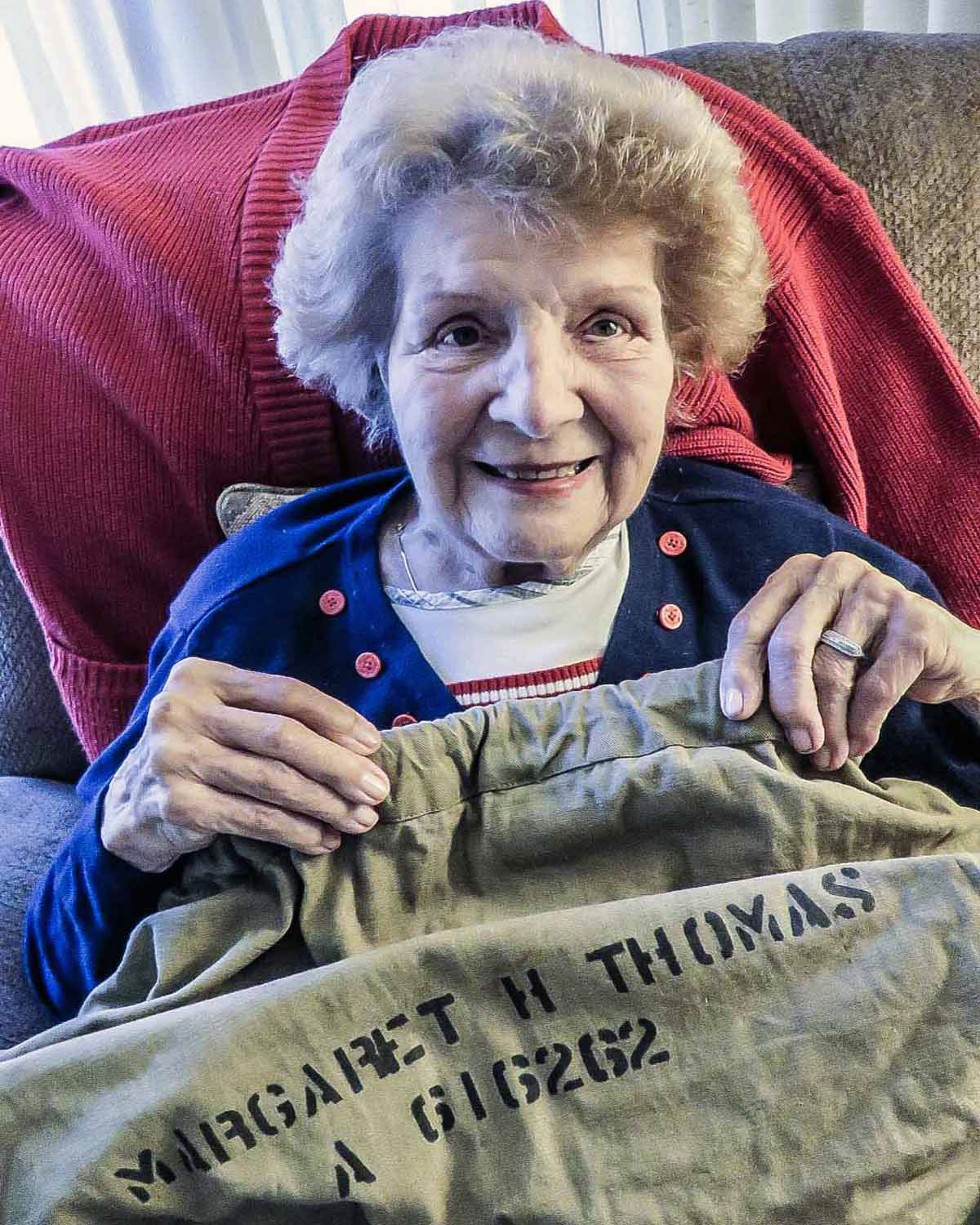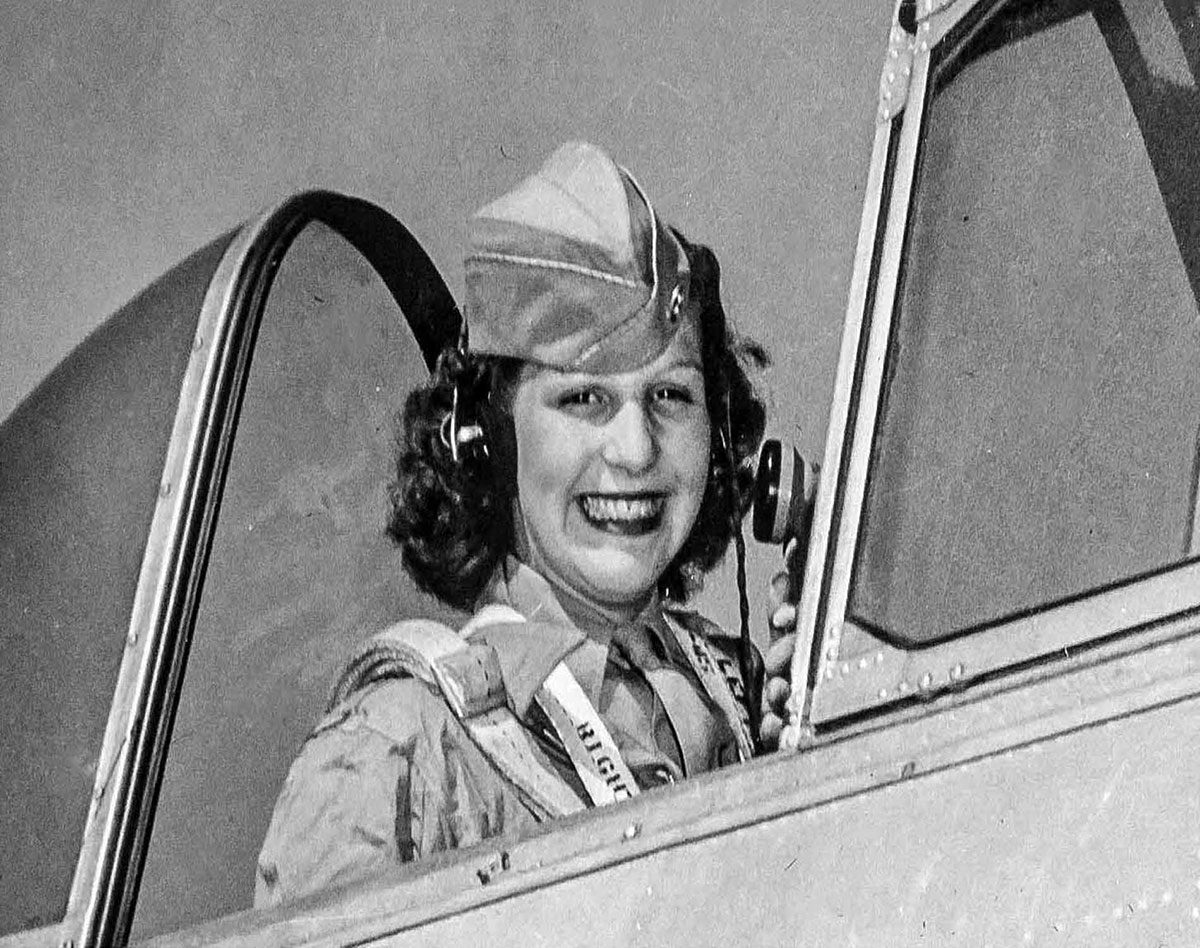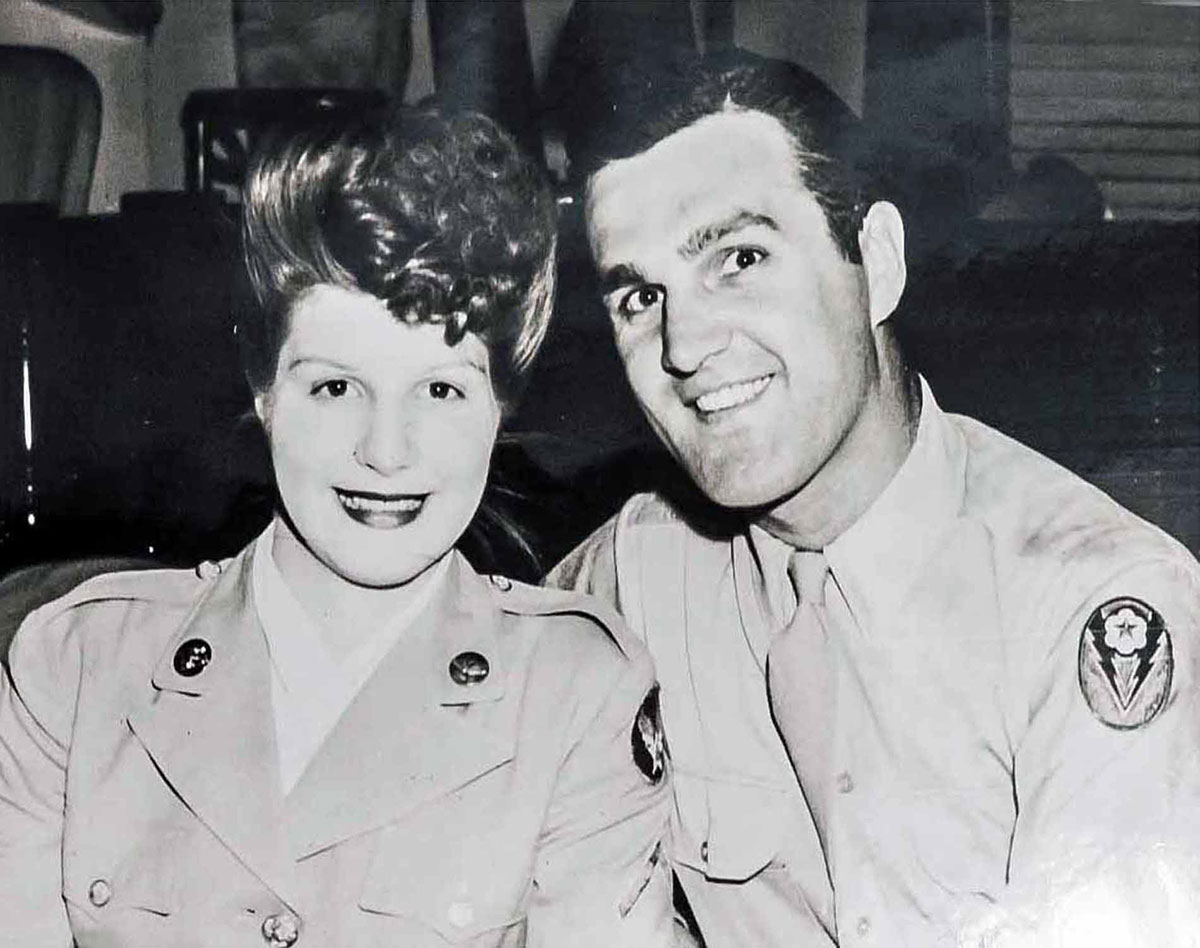Women’s Army Corps World War II Chicago, IL Flight date: 10/27/21
By Carla Khan, Honor Flight Chicago Veteran Interview Volunteer
Life just didn’t go the way the 16-year-old Margaret (Marge) Thomas would have liked it to go.
Being the middle one of five sisters had always been a challenge. Sharing one bedroom with all of them made it worse. Having to go to work at the American Can Company where she glued bags to hold beer cans was for the lively teenager certainly not her idea of participating in the war effort. So two years later, at the end of 1944, when Army recruiters showed up at a busy street corner near her work, Marge didn’t hesitate a moment to investigate. After all, she’d do anything to change her life around and joining the Army just seemed to be the answer.
Without telling her mother or sisters, she completed the application form and was accepted because, as the recruiters told her, “The Army needs women to work in factories.” Surprisingly, she found out her mother was very supportive and proud. She put a big service flag with a star in the window for all the neighbors to see.
Within a couple of days, Marge was on a train to Ohio for Basic Training. This turned out to be an eye-opener. She had dreamt of getting her own room; instead she now shared bunks in a wooden barracks with 13 other girls per floor. Her total personal “empire” consisted of a footlocker at the end of her bed. 5am meant getting up and making your bed. If the nickel didn’t bounce off the bedding, the bed was pulled apart and had to be re-made. Food? You ate what you got and didn’t leave anything on your plate. Initially, Marge had trouble with this and was turned away at the garbage can only to have to sit and eat till it was all gone. Eventually, though, she earned that coveted spot next to the can herself and could tell other recruits what the rules were.
Training was a different experience as well for this city girl. She learned to climb over hurdles and walls, she ran and learned to march. But, at the same time, she also developed close friendships with the other girls in her unit. Marge adapted very well and completed Basic Training. To her surprise, she wasn’t sent to work in a factory but was put on a train with many other newly enlisted members of the military who were all headed to Washington D.C. Marge’s final destination was Bolling Field; at that time it was the base for the U.S. Army Air Corps where she became a messenger clerk. In the morning, she’d make her rounds and collect special envelopes that had to be delivered to senior officers at the Capitol or the Pentagon. To get there involved a walk, followed by a trip on the subway “a very small train underground” in Marge’s words, and then more walking. The routes had been specified for her. She liked the work and was so conscientious that soon officers specifically asked for her to deliver their messages.
Through it all, however, Marge did miss her sisters who were busy with their own lives. Mail calls most of the time were a disappointment until one day a big box arrived with her name on it. Her oldest sister had saved ration stamps for butter, sugar and flour and had baked the most delicious cookies ever. Unfortunately, as soon as the other girls on her floor discovered that there were cookies to be shared, they quickly moved in as a pack and all that Marge got out of her box were only the crumbs. She licked up every last one of them and kept the box in her foot locker for a long time.



Bolling Field, used for training, attracted many pilots who needed to complete their required number of flying hours. Marge, who was really homesick, pretty soon figured how she could make this useful for the pilots as well as for herself. She got a part-time job serving beer in the Officers’ Club. Pretty as she was, she had no problems making friends and talking with the pilots. She’d find out who needed many hours and who “happened” to have to go to Midway in Chicago. She’d be told to be at a certain place at a certain time and would get her coveted ride home. Not that it always was comfortable. Occasionally she’d have to sit on a barrel, lie on the floor, or even lie in a gun turret. But it got her home and back. The pilots got their hours in and everybody was happy.
Over time, Marge’s attention to detail was noticed. She was put in charge of other girls in the mail room and supervised the filing of personnel files. Eventually, she was promoted to Sergeant and her positive attitude and answers of “Yes Sir, what can I do?” or “How can I help you?” also earned her a Good Conduct Medal.
The girls in the barracks had become inseparable. They spent all their spare time together, shopping for presents to send home or going to bars or dances. There were enough men around who were willing to take them out. A special time was cherry blossom season in D.C. In spite of a lot of rain, it still was pretty and romantic. Also, around this time, one of her sisters had asked her to look in on a friend who had been ill. The friend, Phil Bernal, and Marge got along really well and stayed in touch after Phil had recovered.
September 2, 1945 marked the end of WWII. The announcement was made over the radio and huge, spontaneous celebrations broke out. Marge participated but still had to complete her tour of duty. She did so, without any regrets because she enjoyed her time in the Army. However, when her time was up, she decided to go home rather than re-enlist. She informed her sisters who all were anxiously waiting for her and she was received with open arms.
Rather than receiving a one-time payment, Marge opted for the G.I.Bill for further education and enrolled in millinery school to learn how to make women’s hats. She figured that hats were very fashionable and eventually she’d be able to start her business from home. What she hadn’t counted on was her enduring friendship with Phil Bernal who also had completed his military service. After all, Phil also was from Chicago. He kept asking her out and not much later his proposal was happily accepted. Phil and Marge were married in 1949. They had 4 children. Marge now has 7 grandchildren and 7 great-grandchildren. After the children were grown, she worked for a credit union. Remembering her own time in the Service, after her retirement Marge volunteered at the USO at Midway Airport.
Marge, thank you for your service. Enjoy your well-deserved honor as part of Honor Flight Chicago’s 99th flight…and Welcome Home!


